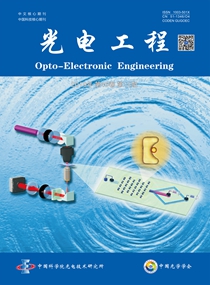2019 Vol. 46, No. 12
Cover Story:Gu X, Huang W, Yang L M, et al. Microfluidic diffraction phase microscopy and its application in parasites measurement[J]. Opto-Electronic Engineering, 2019, 46(12): 190046
Waterborne parasites are spread by water that causing parasitic diseases throughout the world. These waterborne pathogens are recognised as significantly impairing human health and hindering socioeconomic development in countries worldwide. Quantitative phase imaging (QPI) is a powerful optical imaging tool that has emerged in recent years. Among various QPI approaches, diffraction phase microscopy (DPM) is well suited for quantitative. The research group of associate professor Huang Wei from Suzhou Institute of Nano- Technology and Nano-Bionics, Chinese Academy of Science mainly engages in the fields of laser bioimaging technology in recent years. They proposed a method of using diffraction phase microscopy combined with polydimethylsiloxane (PDMS) microfluidic chip to quantitatively measure waterborne parasites.

-
{{article.year}}, {{article.volume}}({{article.issue}}): {{article.fpage | processPage:article.lpage:6}}. doi: {{article.doi}}{{article.articleStateNameEn}}, Published online {{article.preferredDate | date:'dd MMMM yyyy'}}, doi: {{article.doi}}{{article.articleStateNameEn}}, Accepted Date {{article.acceptedDate | date:'dd MMMM yyyy'}}CSTR: {{article.cstr}}
-
{{article.year}}, {{article.volume}}({{article.issue}}): {{article.fpage | processPage:article.lpage:6}}. doi: {{article.doi}}{{article.articleStateNameEn}}, Published online {{article.preferredDate | date:'dd MMMM yyyy'}}, doi: {{article.doi}}{{article.articleStateNameEn}}, Accepted Date {{article.acceptedDate | date:'dd MMMM yyyy'}}CSTR: {{article.cstr}}

 E-mail Alert
E-mail Alert RSS
RSS


